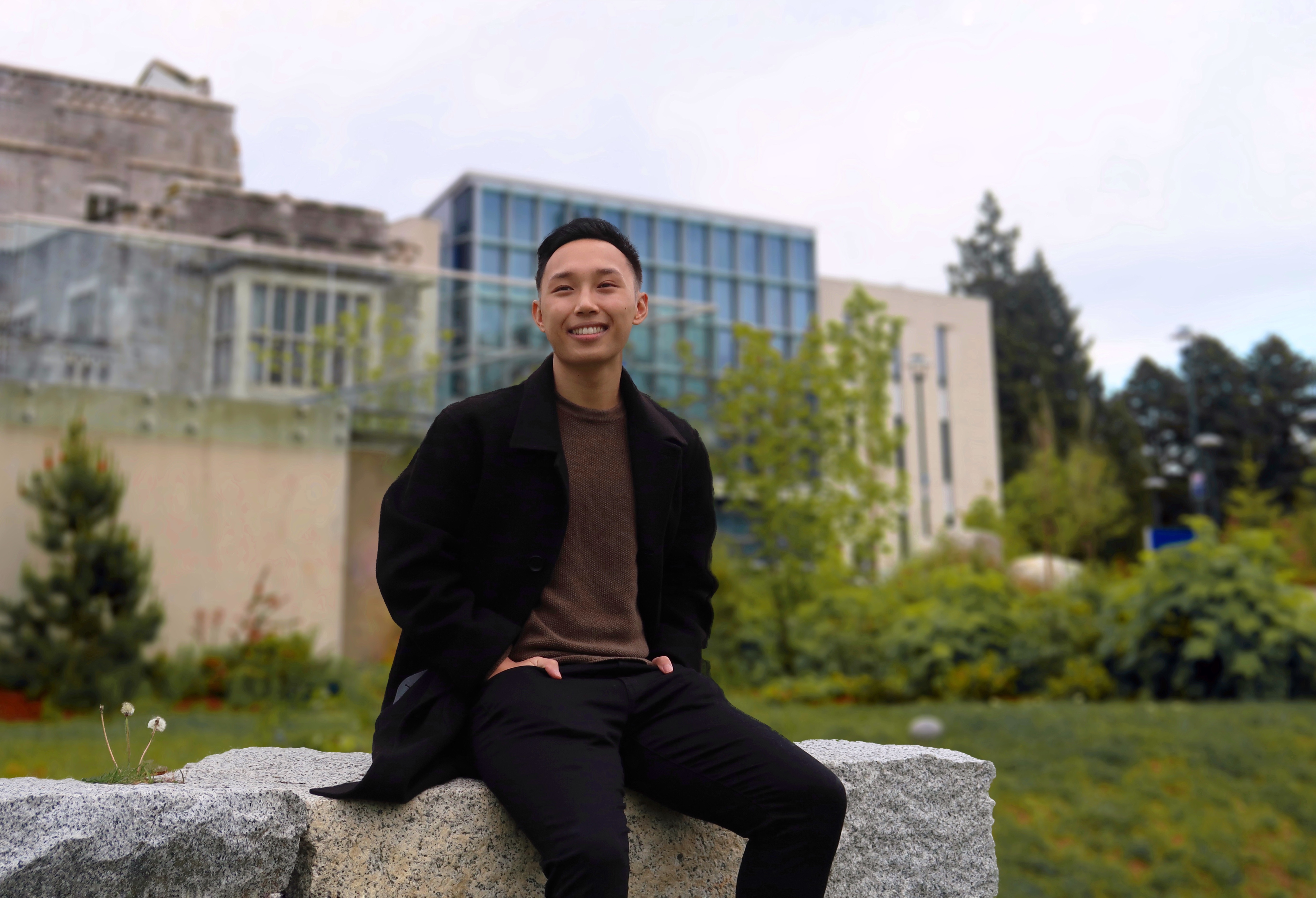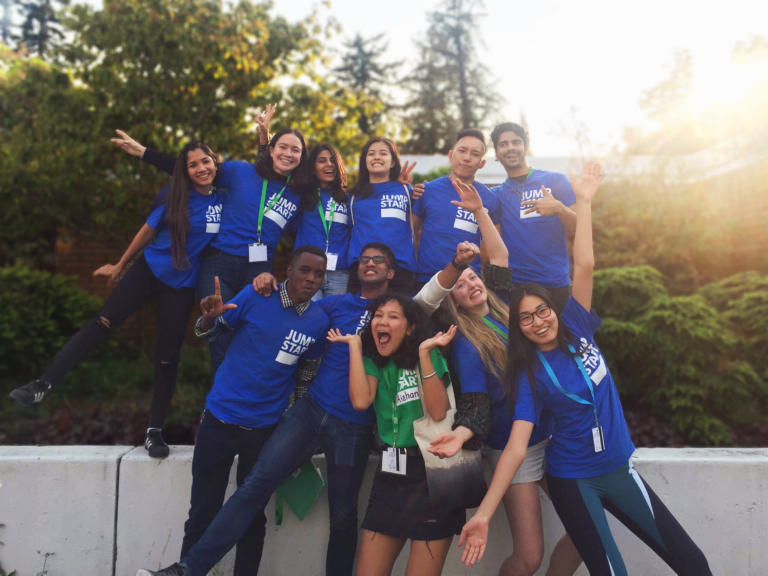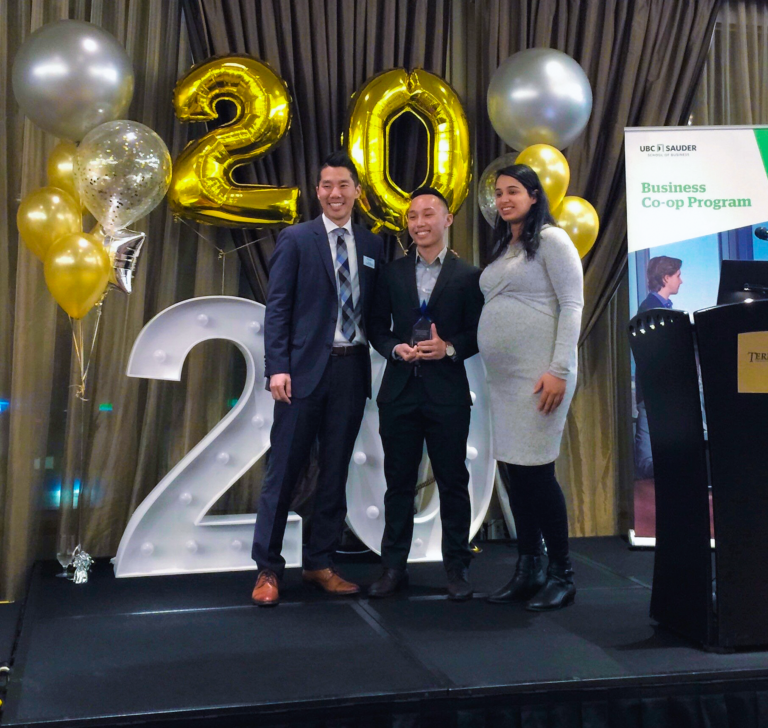Curtis’s parents dreamt that their two children would enter higher education, and Curtis was determined to go to UBC.
While other secondary school students might have a tutor or help with their homework from people around the house, Curtis studied hard and completed all his post-secondary applications by himself. When he was accepted to UBC, his first terms were tough as he adjusted to university life, but he soon settled in. Now in his fourth year, Curtis has excelled at his classes, enjoyed a number of exciting co-op work placements, and studied abroad for a semester in Singapore.
Where are you from, and what was your path to UBC?
I was born and raised in Vancouver, BC. The value of higher education was something my parents instilled in me very early on. They immigrated to Canada with the purpose of giving me and my sister opportunities they never had. Going to UBC specifically was something they always wanted for me, and, in turn, it became something I wanted for myself.
Why did your parents want to you attend UBC specifically?
Having their children attend UBC was the holy grail for them and many other immigrant parents in my neighbourhood. As the top school in the province and one of the most competitive in the country, to them it meant they did a good job raising me – and the bragging rights didn’t hurt either! My parents were also never keen on the idea of me moving away for university, so UBC was perfect.
You are the first person in your family to go to university. What does that achievement mean to you?
It’s something I’m incredibly proud of. In high school, I never had a tutor and my parents weren’t able to help me with my homework or post-secondary applications. I did it all on my own. Being the first in my family to attend higher education, despite the barriers I had to overcome, meant that all the hours I put into my studies and extracurriculars paid off. My parents grew up in families that could barely afford dinner, let alone college educations. Going to university means never having to go through the hardships they endured and making their sacrifices worth it.
Being the first in my family to attend higher education, despite the barriers I had to overcome, meant that all the hours I put into my studies and extracurriculars paid off.
What was it about UBC that attracted you to the university?
UBC’s global recognition and title of “most international university in North America” made my decision easy. I wanted a degree that would enable me to work anywhere in the world, and UBC had that. The opportunity to learn about topics beyond a Canadian perspective from professors and with students from across the globe has taught me a lot about the world and prepared me for an international career.
Usually, people move far from home to get this kind of education. Instead, I got to share my university experience with my girlfriend from high school, enter the Sauder School of Business with one of my best friends, spend lunch breaks with my sister, and even take a 300-level course with a friend I went to Kindergarten with. The diverse community at UBC is what sets it apart from other universities and I’m lucky to have found that in my hometown.
Do you think you found settling into university life more difficult because you were the first in your family to go?
For sure. There’s an immense pressure to succeed, and I had zero clue what to expect. I didn’t know what credits were, how to create a course schedule that would work for me, or how draining the commute was. I didn’t even know there was a different grading system until deep into my first semester! I wish I had advice on how to maintain friendships going into university and that I knew the importance of trying to make new friends. The opportunity to work as a Jump Start Orientation Leader was what helped me finally feel at home at UBC. I got to be the person I needed in my first year, but didn’t have. I lived in residence, made new memories on campus, and met some of my favourite people at UBC in this role.
As well as excelling at your classes and working as a Jump Start leader, you’ve done a lot of work experience during your degree. Can you talk about your first co-op term at NatureKids BC?
NatureKids BC is a non-profit organization that strives to help kids explore, play, learn about, and take action for nature. Through my co-op term there, I gained valuable work experience while supporting a meaningful cause. As the only full-time employee, I tackled projects like revamping their online store, tracking budget deliverables on Excel, and writing strategic planning documents to support the board of directors. I was able to learn a lot from this experience because my team trusted me with a high degree of responsibility despite it being my first ‘real’ job. To top it all off, I received the 2019 Outstanding Co-op Student of the Year award for my work.
You’ve also worked for the UBC Recruitment Marketing team. What was your role there and how did you find the experience?
As a Digital Marketing Assistant at UBC Recruitment Marketing, I help prospective students through the admissions process by managing various social media initiatives. I’ve loved my experience so far! It didn’t start out the way I anticipated – with me becoming the only person on the social media team during the busiest time of the year after my supervisor resigned – but the curveballs thrown my way were great opportunities for me to adapt and take on more responsibility. Working on campus was a blessing because I was able to take classes and stay connected to the UBC community, which is usually hard to do during a co-op term. With all that has happened in 2020, I feel like my work in this role is now more important than ever and I’m excited to help students navigate this difficult time in their lives.
What do you think the benefits are of doing co-op placements while at UBC?
It’s difficult to know exactly what it is you want to do for the rest of your life when you’re young. That’s true whether you’re a senior in high school or a fourth-year student in university. My co-op placements helped me gain a bit of clarity by allowing me to explore various industries and roles that I was interested in. Getting to learn what I actually like and dislike while still in school will help me make more informed decisions about my career after I graduate.
You became the first in your family to go to university when you accepted your offer to UBC, but you also experienced another school when you chose to study abroad for a semester at the National University of Singapore. Why did you want to study there?
As a commerce student, the idea of doing a semester at Asia’s top business school was what drew me in, and the number of courses offered that directly satisfied my degree requirements sealed the deal. Having lived in the same home for my entire life, I was dying to get as far away from Vancouver as possible to see the world. Singapore was perfect. It was far, it was foreign, and it was surrounded by countries I could travel to on the weekends. I never felt very connected to my Chinese culture, so going to a country with a strong Chinese influence was something that interested me. Being in Singapore in February and seeing Chinese New Year celebrated in a way I had never seen before was very special.


